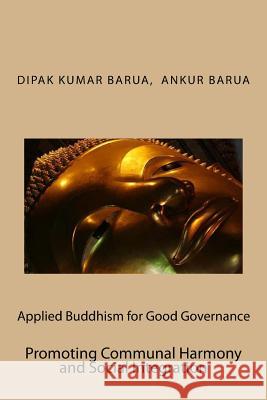Applied Buddhism for Good Governance: Promoting Communal Harmony and Social Integration » książka
Applied Buddhism for Good Governance: Promoting Communal Harmony and Social Integration
ISBN-13: 9781519139221 / Angielski / Miękka / 2015 / 158 str.
Modern Buddhism has become an intrinsic part of a globalized world. With its philosophy of the way of life, it takes special place in human and cultural identity. Buddhism in modern times had already incorporated either other genuine Asian traditions or Western traditions and merged with the socio-cultural backgrounds of many countries across the world. With this background, the researchers explored some Buddhist documents, i.e. literary texts, royal edicts, administrative injunctions in relation to communal harmony and national unity. The evidence from Buddhist texts revealed that Applied Buddhism strongly encourages stability, security and dignity of any nation through peaceful coexistence. Buddhism also stresses the principle of interdependence which is also the foundation of globalization in economic interest. An important truth is that no economic system is value-free. Every system of production and consumption encourages the development of certain values and discourages others. So, it is not possible for economics to be free of values when, in fact, it is rooted in the human mind. The practice of donation or 'giving' is the traditional Buddhist way of redistribution of wealth. Donation is selfless giving. It is giving in the spirit of Non-clinging. Non-clinging is the Wisdom of Insight into the Insubstantiality or Emptiness of all things. The emphasis on Donation and merit-making is the Buddhist contribution to the healthy and uniform economic globalization.
Zawartość książki może nie spełniać oczekiwań – reklamacje nie obejmują treści, która mogła nie być redakcyjnie ani merytorycznie opracowana.











